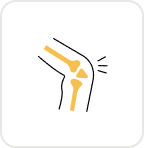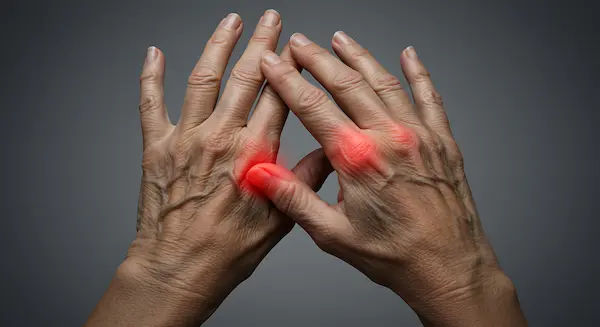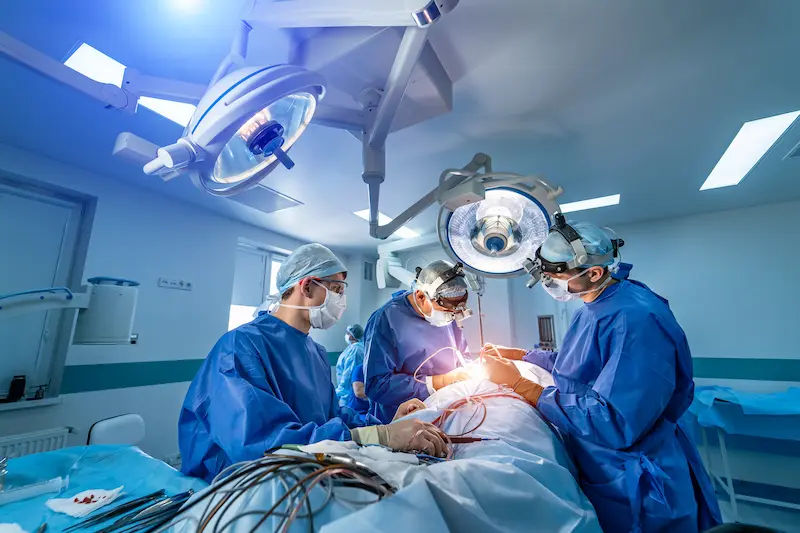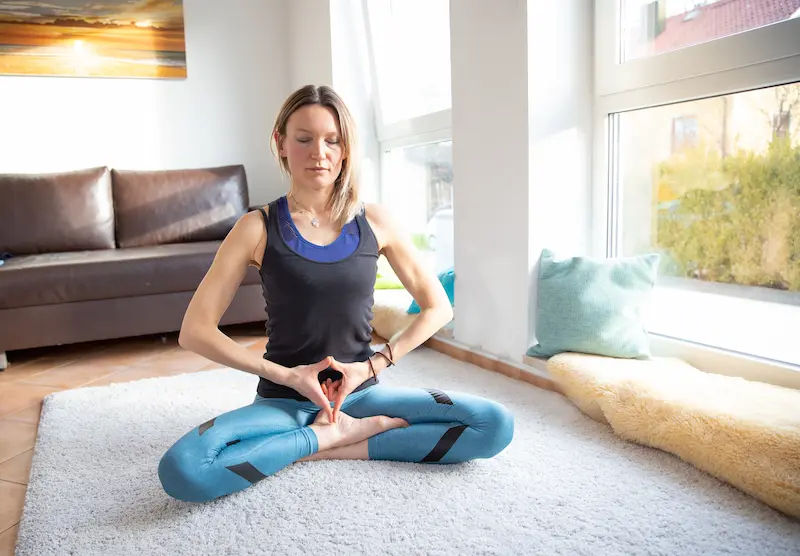Guide to National Bone and Joint Day
Learn the significance of National Bone and Joint Day, ways to maintain bone and joint health, and tips for preventing musculoskeletal issues.

Written by Dr. Siri Nallapu
Reviewed by Dr. Rohinipriyanka Pondugula MBBS
Last updated on 13th Jan, 2026
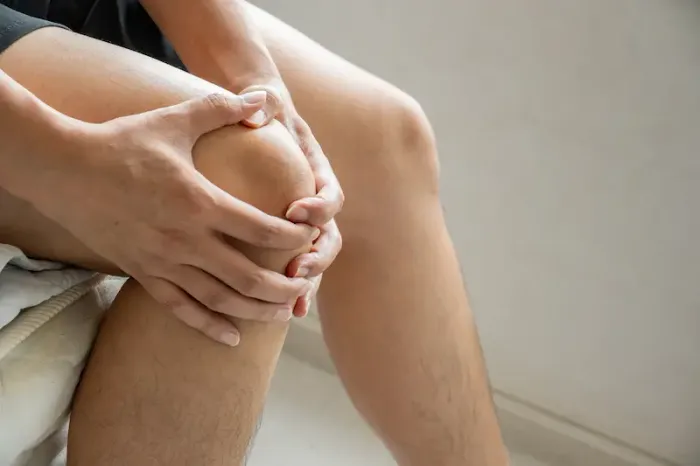
Introduction
Every step you take, every movement you make, relies on the complex, often overlooked system of your bones and joints. Yet, we rarely give them a second thought until something starts to ache or stiffen. National Bone and Joint Day, observed to raise awareness about musculoskeletal disorders, serves as a crucial annual reminder to prioritise the very framework that allows us to live active, independent lives. This day highlights the growing epidemic of conditions like arthritis, osteoporosis, and chronic back pain, which affect millions across India and the world. This article is your comprehensive guide to understanding the significance of this day, the fundamentals of your bone and joint health, and the practical, proactive steps you can take to ensure your mobility lasts a lifetime. We will delve into common conditions, preventive strategies, and the vital signs that indicate it's time to consult a professional.
What is National Bone and Joint Day?
National Bone and Joint Day is an annual observance dedicated to increasing public awareness about the prevention, management, and treatment of musculoskeletal conditions. It’s a day for health organisations, doctors, and communities to come together to educate people on the importance of bone and joint care.
The History and Mission Behind the Day
While the exact origin date varies, the day is widely recognised and promoted by major orthopedic associations and institutes, such as the Indian Orthopaedic Association. The mission is twofold: first, to educate the public about the prevalence and impact of musculoskeletal diseases, and second, to advocate for better access to care and advanced treatment options. The day often features free health camps, seminars, and screening programs aimed at early detection.
Why Focus on Bone and Joint Health in India?
The focus is particularly sharp in India due to a confluence of factors. Our aging population is growing, leading to a higher incidence of age-related disorders like osteoarthritis and osteoporosis. Simultaneously, modern lifestyles characterised by prolonged sitting, poor posture, and dietary deficiencies are causing these issues to appear in younger demographics. The economic burden of lost productivity and medical costs makes bone and joint health a critical public health priority.
Consult an Orthopaedician for the best advice
Understanding Your Musculoskeletal System
Think of your body as a building. The bones are the steel framework, providing structure and support. The joints are the hinges and pivots that allow the framework to move. Together, they form the musculoskeletal system.
Bones: The Framework of Your Body
Bones are living, growing tissues made mostly of collagen (a protein that provides a soft framework) and calcium phosphate (a mineral that adds strength and hardens the framework). They protect our vital organs, anchor our muscles, and store essential minerals. Peak bone density is typically achieved by our late 20s, making early care imperative.
Joints: The Hinges That Allow Movement
Joints are the connections between bones. They are cushioned by cartilage and lubricated by synovial fluid to allow for smooth, frictionless movement. Different types of joints enable various motions from the wide-ranging ball-and-socket joint of your hip to the simple hinge joint of your knee.
Common Threats to Bone and Joint Health
Several conditions can compromise this system. Understanding them is the first step toward prevention.
Osteoarthritis: The Wear-and-Tear Arthritis
This is the most common form of arthritis, often resulting from the gradual wear-down of protective cartilage at the ends of bones. It commonly affects weight-bearing joints like the knees, hips, and spine. Symptoms include pain, stiffness, and swelling. Risk factors include age, obesity, previous joint injury, and genetics.
Osteoporosis: The Silent Thief of Bone
Osteoporosis is a condition where bones become weak, brittle, and porous, increasing the risk of fractures. It's often called a "silent disease" because bone loss occurs without symptoms. A person might not know they have it until they suffer a minor fall that causes a broken bone. It is especially prevalent in postmenopausal women due to dropping estrogen levels.
Lower Back Pain: A Modern Epidemic
Often linked to muscle strain, ligament sprain, or disc problems, lower back pain is one of the leading causes of disability worldwide. Sedentary jobs, poor posture while sitting, and incorrect lifting techniques are major contributors. Preventing arthritis early through core-strengthening exercises and ergonomic adjustments can be highly effective.
Proactive Steps for Strong Bones and Healthy Joints
The good news is that many musculoskeletal problems are preventable with a proactive approach centered on nutrition and exercise.
Nutrition for Peak Skeletal Health
You literally are what you eat when it comes to your bones and joints.
Calcium-Rich Foods You Should Eat
Aim for 1000-1200 mg of calcium daily. Excellent sources include:
• Dairy products: Milk, yogurt, and cheese.
• Leafy greens: Spinach, kale, and broccoli.
• Fortified foods: Tofu, orange juice, and certain cereals.
• Nuts and seeds: Almonds and chia seeds.
The Critical Role of Vitamin D
Vitamin D is essential for calcium absorption. Without it, your body cannot use the calcium you consume. The primary source is sunlight. Dietary sources include fatty fish (saloon, mackerel), egg yolks, and fortified foods. For many urban Indians with limited sun exposure, testing Vitamin D levels is important. Apollo24|7 offers a convenient home collection for tests like vitamin D to help you monitor your levels easily.
Exercise: The Best Medicine for Your Joints
Regular physical activity strengthens the muscles that support your joints and helps maintain bone density and joint flexibility.
Weight-Bearing Exercises for Bone Density
These exercises force you to work against gravity. Examples include:
• Walking, jogging, and hiking.
• Dancing and stair climbing.
• Strength training with weights or resistance bands.
Low-Impact Activities for Joint Flexibility
These are kinder to your joints while keeping them mobile:
• Swimming and water aerobics.
• Cycling (stationary or outdoor).
• Yoga and Tai Chi, which also improve balance.
Get Your Health Assessed
When to Seek Professional Help: Recognising the Signs
While lifestyle changes are powerful, some signs warrant professional medical advice. You should consult a doctor if you experience:
• Persistent pain that lasts for more than a few weeks.
• Severe pain, especially at night or while resting.
• Joint swelling, redness, or warmth that doesn't improve.
• Significant stiffness, particularly in the morning.
• Noticeable deformity in a joint or difficulty moving it.
• Any injury causing intense pain or an inability to bear weight.
If symptoms persist beyond two weeks, consult a doctor online with Apollo24|7 for further evaluation. Early diagnosis is key to managing conditions like rheumatoid arthritis effectively and preventing long-term joint damage.
Conclusion
National Bone and Joint Day is more than just a date on the calendar; it's a call to action. It reminds us that the ability to move freely is a gift that requires conscious care. By understanding the risks, adopting a bone-healthy lifestyle rich in proper nutrition and regular exercise, and being vigilant about changes in our bodies, we can significantly reduce our risk of debilitating musculoskeletal disorders. Remember, taking small, consistent steps today, like choosing the stairs, adding a serving of yoghurt to your diet, or correcting your sitting posture, can lead to a lifetime of strength and mobility. Let this day be the starting point for a lifelong commitment to your bone and joint health.
Consult an Orthopaedician for the best advice
Consult an Orthopaedician for the best advice

Dr. Anil Pradeep Jadhav
Orthopaedician
23 Years • MBBS MS (Ortho)
Nashik
Apollo Hospitals Nashik, Nashik
(25+ Patients)

Dr. Suraj Prakash
Orthopaedician
5 Years • MBBS, MS (Ortho)
Bengaluru
Apollo Clinic, Indiranagar, Bengaluru

Dr. Padam Singh Gautam
General Physician/ Internal Medicine Specialist
43 Years • M.B.B.S (WARDHA M. S.), F.A.G.E. (MANIPAL), F.A.I.M.S. (Pb.), M.A.I.M.S. (Pb.), M.R.S.H. (LONDON)
Noida
Dr Padam Singh Gautam Fracture Clinic, Noida

Dr. Susheel B
Orthopaedician
13 Years • MBBS, MS, Ortho Fellowship in Trauma ( Germany) Fellowship in Arthroscopy and Arthroplasty ( Switzerland)
Bengaluru
Apollo Medical Center, Marathahalli, Bengaluru

Prof. Dr. Jambu N
Orthopaedician
23 Years • MBBS, M.S Ortho, FRCS ,FACS
Chennai
Apollo Speciality Hospitals Vanagaram, Chennai
(150+ Patients)
Consult an Orthopaedician for the best advice

Dr. Anil Pradeep Jadhav
Orthopaedician
23 Years • MBBS MS (Ortho)
Nashik
Apollo Hospitals Nashik, Nashik
(25+ Patients)

Dr. Suraj Prakash
Orthopaedician
5 Years • MBBS, MS (Ortho)
Bengaluru
Apollo Clinic, Indiranagar, Bengaluru

Dr. Padam Singh Gautam
General Physician/ Internal Medicine Specialist
43 Years • M.B.B.S (WARDHA M. S.), F.A.G.E. (MANIPAL), F.A.I.M.S. (Pb.), M.A.I.M.S. (Pb.), M.R.S.H. (LONDON)
Noida
Dr Padam Singh Gautam Fracture Clinic, Noida

Dr. Susheel B
Orthopaedician
13 Years • MBBS, MS, Ortho Fellowship in Trauma ( Germany) Fellowship in Arthroscopy and Arthroplasty ( Switzerland)
Bengaluru
Apollo Medical Center, Marathahalli, Bengaluru

Prof. Dr. Jambu N
Orthopaedician
23 Years • MBBS, M.S Ortho, FRCS ,FACS
Chennai
Apollo Speciality Hospitals Vanagaram, Chennai
(150+ Patients)
More articles from General Medical Consultation
Frequently Asked Questions
1. What is the difference between osteoporosis and osteoarthritis?
Osteoporosis is a disease of the bone itself, making bones weak and prone to fracture. Osteoarthritis is a degenerative joint disease where the protective cartilage wears down, causing pain and stiffness within the joint.
2. I'm young and active. Do I still need to worry about bone health?
Absolutely. Your 20s are the prime time to build peak bone density. The stronger your bones are now, the more 'reserve' you'll have to draw from as you age, reducing your risk of osteoporosis later in life.
3. What are the best exercises for someone with existing knee pain?
Low-impact activities are ideal. Swimming, water aerobics, cycling, and elliptical training are excellent as they strengthen the supporting muscles without jarring the joints. Avoid high-impact activities like running or jumping.
4. How can I get enough Vitamin D if I live in a city with high pollution?
Dietary sources like fortified milk, fatty fish, and egg yolks can help, but they are often insufficient. Consider talking to a doctor about Vitamin D supplements. A simple blood test can determine your levels.
5. Are cracking your knuckles bad for your joints?
Generally, no. The popping sound is usually caused by gas bubbles bursting in the synovial fluid. However, if knuckle cracking is accompanied by pain or swelling, it's best to stop and consult a doctor.
